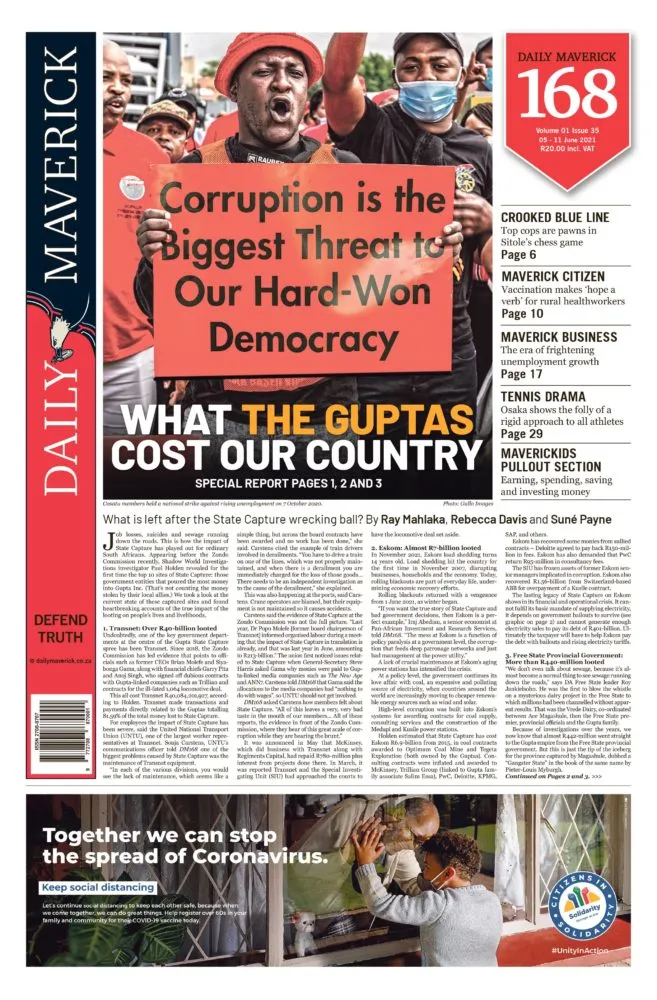First published in the Daily Maverick 168 weekly newspaper.
Who can forget the line, screamed by the Queen, “Off with her head! Off with…”
Or: “No, no!” said the Queen. “Sentence first – verdict afterwards.”
Writers and scholars have been trying to understand the meanings within Lewis Carroll’s fantastical work for 150 years, but for me the story was a powerful comment about the madness of power and government (and the wisdom of mere mortals).
The Competition Commission and its commissioner, Tembinkosi Bonakele, exhibited the twisted logic worthy of Wonderland this week when the commission ruled against the acquisition of Burger King by Emerging Capital Partners, a Pan-African private equity firm that has been investing across Africa for the past 20 years. The firm has raised more than $3.2-billion in growth capital through its funds and co-investment vehicles. We’d like them to come back.
The commission is not concerned that the sale will stifle competition. But Burger King is being sold by a black company to a white company (to use simple, not politically correct language), so it argues that the transaction is not in the public interest, because it will result in a dilution in black ownership.
Promoting and advancing transformation should be the aim and objective of every single South African, but the blunt application of rules and ideology always has unintended consequences – none of them good. In this case, the implications for Grand Parade Investments (GPI), the black-owned company that is selling Burger King, are not good.
First, the decision prevents existing historically disadvantaged shareholders of GPI from realising full value from their investment in Burger King. They will be poorer for it. Bear in mind that 99% of shareholders voted in favour of the transaction. Is this to ignore their voice? Many of these shareholders were subjected to some questionable capital allocation decisions by previous management. The current management team is doing an excellent job of managing the business in the best interests of all shareholders.
Second, does it mean that GPI can only sell to another black-owned firm? If that is the case, the unintended consequence is the creation of stranded assets that instantly diminish in value.
Taking it further, what does this mean for other empowered entities? Take Brimstone, which owns all or part of companies such as Sea Harvest and House of Monatic; and African Rainbow Capital, which is invested across SA’s economy. Must one apply a “BEE discount” to them since they cannot dispose of their investments to the highest bidder?
Understanding the logic seems about as fruitless as Alice’s efforts to solve the Mad Hatter’s riddle.
The logic becomes even more difficult to understand when it is not applied evenly. In 2016 the Competition Commission gave Shanduka, the empowerment firm formed by Cyril Ramaphosa in 2001, the green light to sell the local operations of McDonald’s to the Emirates-based MSA Holdings for an undisclosed amount.
What was the difference between the two, I wonder?
It seems likely that the commission’s decision will be overthrown by the Competition Tribunal or challenged at the Appeal Court.
Challenging arbitrary decisions in court is becoming the only way for SA business to ensure that incorruptible decision-making is the order of the day. But all this does is add another layer of cost, time and poor PR to an environment that is already hobbled by excessive regulation and rent-seeking.
It’s probably too late to add that I have a great deal of respect for the good people at the competition authorities. But every now and again comes a decision that undoes this respect – in which misguided ideology leads to perverse consequences. Unfortunately, it is becoming the story of regulators, legislators and politicians across our country.
“In that direction,” the Cat said, waving its right paw round, “lives a Hatter: and in that direction,” waving the other paw, “lives a March Hare. Visit either you like: they’re both mad.”
“But I don’t want to go among mad people,” Alice remarked.
“Oh, you can’t help that,” said the Cat. “We’re all mad here.”
It would be funny if the future of a country wasn’t at stake. DM168
This story first appeared in our weekly Daily Maverick 168 newspaper which is available for free to Pick n Pay Smart Shoppers at these Pick n Pay stores.


















 Become an Insider
Become an Insider
Surely the constitutional right of GPI shareholders to sell a business is being trampled on by a minor government official who seems to be relying on a misinterpretation of the Competition Act.
It is a short leap from this ruling to saying any sale by any seller must be transformative. It is after all a bit unfair to say only empowered firms are so constrained.
Willing buyer willing seller – she left the building.
A lot like a black homeowner in a previously all-white suburb not being allowed to sell their home to a white person. Or for that matter any capital item. I cannot imagine any more effective discrimination against black capital than this ruling. Absurd!